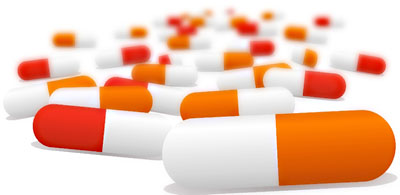Has innovation stagnated over the past half century? One version of the argument for the prosecution is that your great-grandma from 1900 would be astonished if she were whisked forward in time to 1950. But if your parents from  1950 were whisked forward to 2011, they’d mostly yawn. Aside from the internet, everything would seem pretty familiar.
1950 were whisked forward to 2011, they’d mostly yawn. Aside from the internet, everything would seem pretty familiar.
But Matt Steinglass points out that there’s one area where this isn’t true:
The situation with health care is almost the reverse of that with most other consumer technology. While someone from 1890 would have found a hospital in 1950 pretty much familiar, with a bunch of tweaks and upgrades, someone from 1950 would find a hospital today unrecognisable and startlingly futuristic. From widespread use of blood banks and antibiotics to defibrillators, epidural anaesthesia during delivery, heart surgery and angioplasty, laboratory diagnosis of viruses and bacterial infections, tumor biopsies and chemotherapy, and of course organ transplants, MRIs, and so forth, most of what we expect to see when we go to a hospital these days was developed in the second half of the 20th century. Not to mention the drugs we buy, both prescription and over the counter: birth-control pills, antihistamines, antidepressants, anti-retrovirals, et cetera.
Is this a good thing? Sure, and yet Matt has reservations: “We celebrate the technological revolutions that shifted us from an economy mainly focused on getting enough food to eat well….I’m happy that people today spend much more on cars, computers, clothes and entertainment than they do on food. I wouldn’t be happy with an economy in which people spent more on health care than they do on cars, computers, clothes and entertainment.”
I hate to be the one to break the news, but I’m pretty sure we already spend more on healthcare than on those four categories combined. This is a bad thing in a lot of ways, because there really is a lot of waste in the healthcare field. We overpay for services, we demand lots of tests that aren’t necessary, and, as Matt points out, we spend a ton of money on end-of-life treatments that are hard to justify.
And yet, I want to argue that there are two reasons the situation isn’t quite as bleak as it seems. First: a lot of the innovations of the past 50 years are really, really useful. We’re often unhappy because the biotech revolution hasn’t given us 100-year lifespans yet, but we obsess too much over lifespan. Hip replacements don’t allow you to live longer, but they’re pretty damn beneficial. Just ask anyone who’s had one. Ditto for heart bypass surgery, which allows you to live a much more active life than otherwise. Ditto again for prescription pain meds, HIV therapies, artificial limbs, blood pressure meds, and a hundred other things. Modern medicine really does allow a lot of people to live far more comfortable and mobile lives than they used to.
Then there’s reason #2: I guess I just have more faith in the future of medicine than a lot of people. Right now, I think we’re stuck in the early stages of a technological revolution, and early stages of technological revolutions often don’t look that great. Steam engines in their first few decades were barely worth operating beause the technology just wasn’t good enough or cheap enough to replace very much human labor. Computers in the 50s seemed doomed to highly specialized niches that would benefit the economy only modestly. Even agriculture wasn’t really all that promising when it first got started 10,000 years ago.
I think that’s where we are with medicine. We understand enough to make some progress, but we don’t understand enough to make the jump to truly inexpensive, broad-based therapies that make our bodies fundamentally better than they used to be. It’s just a really hard problem. But selective breeding eventually turned wheat into a truly useful staple crop, the separate condenser made steam engines the drivers of the Industrial Revolution, and the development of ICs turned computers into mass-market devices. We haven’t gotten there with medicine yet. We’re beyond the mechanical calculator stage, so to speak, but not quite past the tube stage. And that stage of development often produces products that are unreliable, expensive, and only marginally useful.
But we’ll get past it eventually. And when we do, healthcare will probably once again be a smaller share of the economy than cars (or whatever we use for cars by that point), computers, clothes and entertainment. So there’s some reason for optimism. Or, at a minimum, at least some reason not to despair too soon.
















